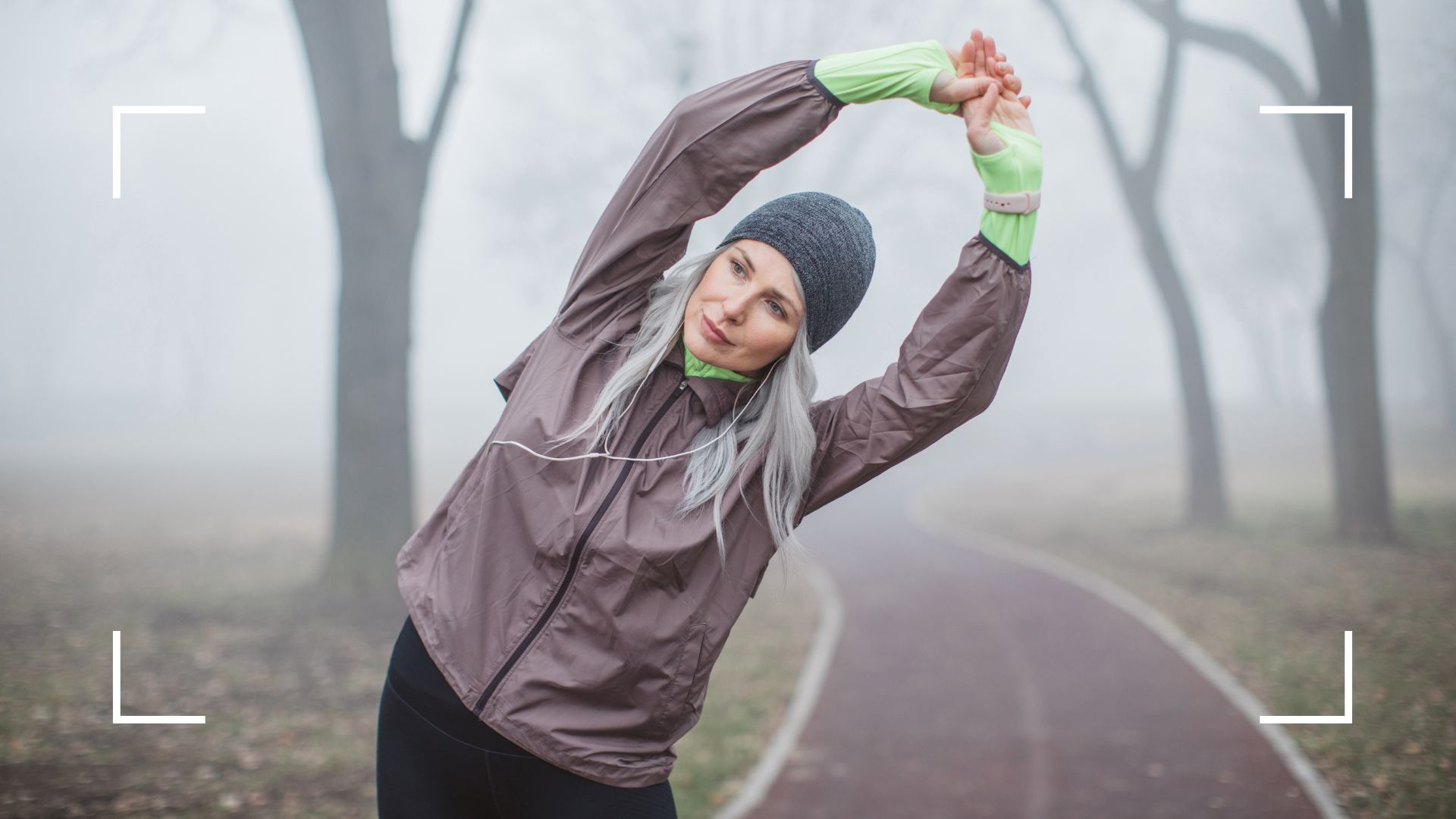Does working out help hangovers? This is what the experts want you to know
Does working out help hangovers? If you're looking for a way to ditch the headaches and tiredness of the festive season, this is what a nutritionist and doctor have to say


Does working out help hangovers? For those who like a drink (or two), it's no secret that the festive season can leave us feeling a little worse for wear. And while we all know there's no such thing as a hangover 'cure', some people believe that getting up and out can do wonders for reducing the symptoms.
If you're someone who has a regular exercise routine - whether that be running, yoga, or going to the gym a couple of times a week - and enjoys a couple of glasses of wine, you'll know the struggle of party season.
But do you have to miss your weekly fitness class every time you want to have a glass of wine with friends? Should you stop drinking alcohol for good to reap the benefits of exercise? This is what the experts have to say on whether exercising with a hangover helps to reduce the symptoms or whether it's something to skip if you're feeling your best.
Does working out help hangovers?
There's no evidence that exercise will help your body metabolise alcohol faster, i.e. you can't 'sweat out' a night of drinking. "A hangover occurs as a result of the effect of alcohol on the body, namely dehydration and lowering blood sugar. While you often read articles suggesting to sweat your hangover out, there is no evidence on whether this is a good idea, let alone effective," says leading sports nutritionist Renee McGregor.
When we're hungover, the body is working hard to break down the toxins from alcohol, which is why we often feel fatigued when we drink a lot in one go or drink alcohol every day. It's also why we tend to feel nauseous (that'll be the impact of alcohol on the gut) and have a headache (dehydration).
Adding another stressor to the body at this point can undoubtedly do more harm than good. "Depending on the severity, the main risk is further dehydration, nausea and loss of further electrolytes, which in the worst case scenario could lead to collapse," she adds.

Renee McGregor has over 20 years of experience working in clinical and performance nutrition. A leading figure in the nutrition world and co-founding the hugely successful campaign, #TRAINBRAVE, to raise awareness of eating disorders in sport. She is also the best-selling author of Training Food, Fast Fuel books and Orthorexia, and When Healthy Eating Goes Bad.
Dr Deborah Lee, a former GP who works with Dr Fox Online Pharmacy, agrees. "You are also more likely to suffer from muscle cramps or have an injury [if you exercise hungover] as alcohol causes a build-up of lactate and creatine kinase in your muscles."
Sign up to our free daily email for the latest royal and entertainment news, interesting opinion, expert advice on styling and beauty trends, and no-nonsense guides to the health and wellness questions you want answered.
Working out when you're hungover isn't doing your fitness any favours either. Per research by Utrecht University, those who exercise when hungover tend to experience much higher levels of exhaustion during the workout compared to those who aren't, so not only is the workout going to feel harder, but you're also unlikely to reap the benefits when it comes to your endurance in the long term.
"Exercising while your body is still metabolising alcohol will lower your endurance, worsening your fatigue, and meaning your post-exercise recovery takes longer," Dr Lee says.
Although it's best to learn how to prevent a hangover by drinking less in the first place, needless to say, recovering from a night of heavy drinking by other methods than exercise is a better option.
If you experience hangovers regularly and drink often, cutting down on alcohol or stopping drinking completely may be something to consider. If you're worried about your alcohol intake, speak to your GP.

Dr Deborah Lee was an NHS doctor for many years. Having trained as a GP, she now specialises in all aspects of women's health. Dr Lee now works as a medical and healthcare content writer for Dr Fox Online Pharmacy.
What should I do instead?
While sweating it out is only likely to make you feel worse, gentle exercise could have some benefits for a hangover. This includes light yoga, stretching, or Pilates at home if you want to stay inside but don't feel like sitting down all day - and one of the best Pilates apps can help you find a low-impact routine for you in this case. Alternatively, heading out on a relaxed walk to get some fresh air is also a good idea.
Not only will this help stretch your legs and offer a much-needed serotonin boost (the so-called 'happy' hormone), but it can offer a distraction from the symptoms too. A session of walking meditation, for instance, could help refocus your mind and get in touch with your body too.
Alcohol puts physical and mental stress on the body, so any exercise you do should be low-intensity to improve the hangover symptoms and help you recover.

Tips for working out with a hangover
- Choose gentle exercise: "Most sports specialists recommend gentle exercise for a hangover, such as yoga, a slow walk, or a light jog," says Dr Lee. "Don't opt for cardio or strength training, as this may well make your hangover worse."
- Simply stretch: If the idea of leaving the house with a hangover goes beyond the realm of possibility, some light stretching may have the same effect. Many of the best stretching apps offer gentle routines you can do from the comfort of your living room or bedroom, with no equipment needed.
- Don't move on an empty stomach: "I’m not suggesting a fry up, but trying to consume some porridge or toast will help to elevate blood sugar levels," says McGregor. "If you really can’t face food, drinks that contain Vitamin C, electrolytes, natural caffeine and some sugar are also a great option."
- Remember to hydrate: As Dr Lee says, alcohol is a diuretic and working out with one may lower your hydration levels even more, so be sure to replenish them post-exercise. An electrolyte supplement may help with this, and you can buy these from the likes of Science In Sport and Bulk via Amazon.
The stress of metabolising alcohol on the body also activates our immune response, research shows, and so does exercise. While normally working out would have a positive impact on immune function, the combination of alcohol and exercise could very much have the opposite effect.
In peak cold and flu season, such as the festive period and early January, this is something to consider, and you should avoid working out with a cold for the same reasons. If you're looking to make a change, swapping in some alternatives to alcohol could be the answer to cutting back slowly while keeping up your exercise habits.

Grace Walsh is woman&home's Health Channel Editor, working across the areas of fitness, nutrition, sleep, mental health, relationships, and sex. She is also a qualified fitness instructor. In 2025, she will be taking on her third marathon in Brighton, completing her first ultra marathon, and qualifying as a certified personal trainer and nutrition coach.
A digital journalist with over seven years experience as a writer and editor for UK publications, Grace has covered (almost) everything in the world of health and wellbeing with bylines in Cosmopolitan, Red, The i Paper, GoodtoKnow, and more.